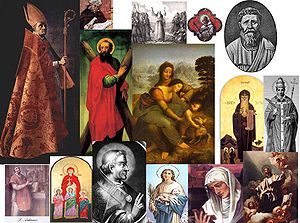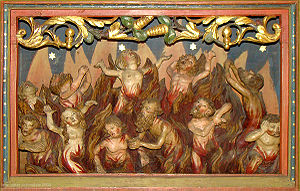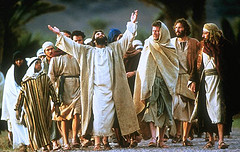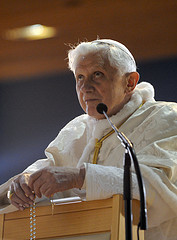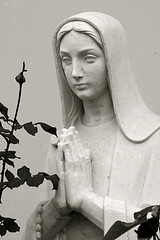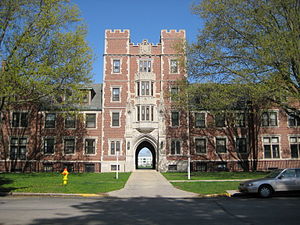 Just what you need, another New Year’s resolution idea right? That is why I’m not going to suggest that you make a resolution to pray more in 2012. I’m not suggesting this because I don’t want prayer to join “getting in better shape,” “getting more organized,” and “quitting [insert vice here]” in the pile of resolutions that you will abandon by February. It almost feels like something labeled a “New Year’s Resolution” is almost guaranteeing it will be forgotten come Martin Luther King Day. So no, I’m not going to suggest making “more prayer” a New Year’s resolution.
Just what you need, another New Year’s resolution idea right? That is why I’m not going to suggest that you make a resolution to pray more in 2012. I’m not suggesting this because I don’t want prayer to join “getting in better shape,” “getting more organized,” and “quitting [insert vice here]” in the pile of resolutions that you will abandon by February. It almost feels like something labeled a “New Year’s Resolution” is almost guaranteeing it will be forgotten come Martin Luther King Day. So no, I’m not going to suggest making “more prayer” a New Year’s resolution.
I think many New Year’s resolutions fail because they have no roots in your life. A New Year’s resolution is like a thin layer of top soil that blows away with the slightest disturbance. For example, your effort to exercise derails the first time you skip the gym. Or your effort to lose weight flies out the window at the first social gathering. The problem often lies in that we are still fundamentally the same person, with the same flaws and weaknesses, on 1/1 as we were on 12/31. Our lives are not like nutrient-rich soil for our resolutions to take root and fundamentally transform who we are.
How do I transform my life into something better and more fulfilling? Well, any long time reader of my articles or someone just glancing at the title of my website will know the answer. Prayer! Honest, heart-felt prayer (especially the rosary) is one of the key ingredients to transforming yourself into living a better life. Unlike a resolution that addresses the outer layers of who we are, prayer helps builds and strengthen our foundation making us more receptive to how God calls us to live. God, through the Holy Spirit, will give us the strength to do what is important, the understanding to ignore what is not so important, and the wisdom to know the difference between the two.
We remember our call to conversion in the Third Luminous Mystery of the rosary — Jesus‘ Proclamation of the Kingdom of Heaven AND the Call to Conversion. Jesus does not ask us to make a few little tweaks and resolutions in our lives. He goes much further than that. Jesus calls us to fundamentally change who we are. As humans we are fundamentally flawed, first by original sin and then by our weakness of committing other sins. So there is little wonder why we are subject to fail living God’s will. But Jesus and His Church teaches that we all have the ability to convert our lives and truly live in God’s grace. We can do this through prayer and receiving the sacraments, particularly the Sacrament of Reconciliation. When we focus our lives around prayer our souls become like nutrient-rich soil ready to bare the fruit of God’s grace. Jesus used this soil analogy throughout His teachings. In Mark 4:1-20, He talks about seed being scattered on the ground and how only the seed that fell on good soil grew strong. Ask yourself, is your soul “good soil?”
Again, don’t make prayer a New Year’s resolution. Make prayer the root of your life’s transformation! Have the courage to allow God to fundamentally change who you are. You will like what God can do to you when you let Him into your life and listen to Him in prayer.
Did you enjoy this article? Support RosaryMeds, buy my new book, and pray harder. Available now on Amazon.
Related articles
- New Year’s Resolutions (traditionalchristianity.wordpress.com)
- We’re just a few days away from the New year, so what type of resolution should I make? (pastormikesays.wordpress.com)











